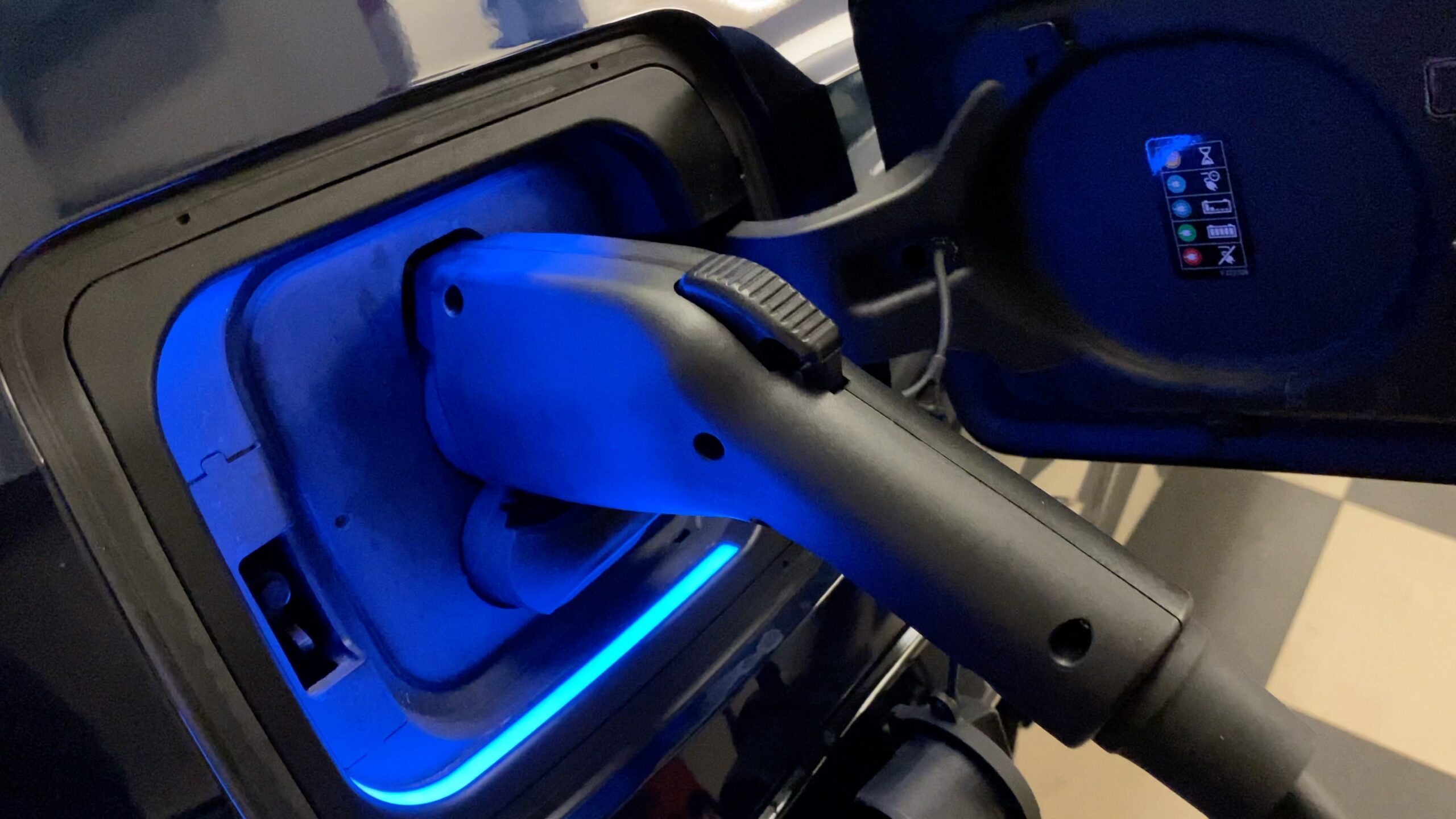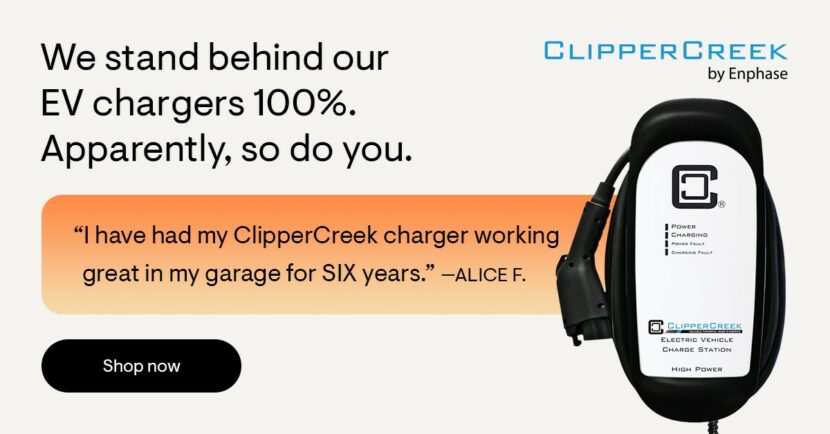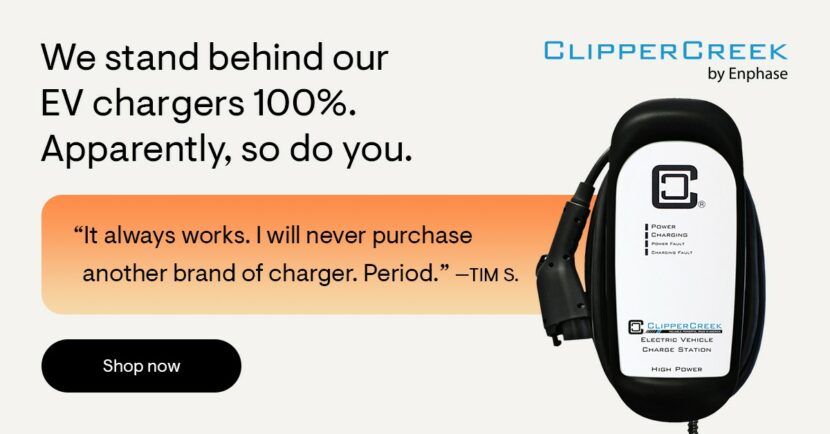If you’ve been following along in our series of EV-based articles, you’ve noticed we’ve mentioned saving money a lot. Of course, it’s no secret that charging an electric BMW is going to be a lot less expensive than putting gas in – especially these days. But exactly how much does it cost to charge a BMW EV? We do a little bit of research, so you don’t have to.
This series of EV-related articles is brought to you by ClipperCreek powered by Enphase. ClipperCreek has been a pioneer in the EV charging market since 2006 with Level 2 AC charging stations. You can catch our first three articles here: Buying Your First BMW EV, BMW EV Ownership: Terminology, Charging, and Battery Health, How To Get Tax Rebates for Installing a Home EV Charger and Benefits of Outdoor BMW EV Charging: Personal and Commercial.
The average kWh cost varies per state significantly. So, we’ve broken it into two groups – low and high. The high cost is the estimated cost to charge a BMW EV in a state like California, which is roughly $0.25/kWh. Low denotes – you guessed it – a lower-priced charging area, like Arizona at $0.13/kWh. It should also be noted that these times and prices are assuming a 100% charging efficiency. Which is possible, although unlikely. So – your mileage and costs may vary!
For gas price equivalency, we used a 2023 Audi Q7 to compare to the BMW iX, with an EPA-estimated 19 mpg combined. The BMW i4 matches the 2023 Mercedes-Benz C Class – which the EPA rates at 25 mpg combined. $4.00/gallon is probably on the low side for a gallon of premium, but that’s what we went with as it is currently close to the national (US) average.
Home Charging Costs for the BMW iX
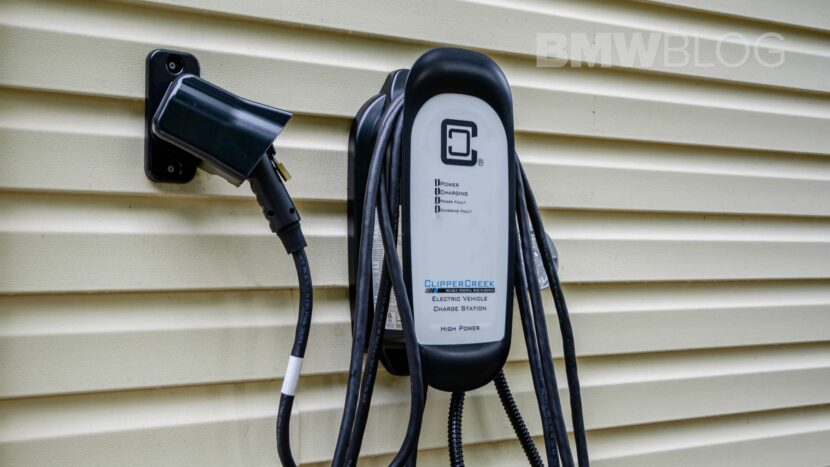
- Charging, 20%-80%: Approximately 6 hours. High: $15.93 Low: $8.23
- Charging, 0%-100%: Approximately 11 hours. High: $26.38 Low: $13.72
The iX will have regained 194 miles of range in those six hours. To go 194 miles, our Audi Q7 would require 10.2 gallons of high test and set you back $40.00. $90.00 would fill up the Audi’s 22.5-gallon tank.
Home Charging Costs for the BMW i4
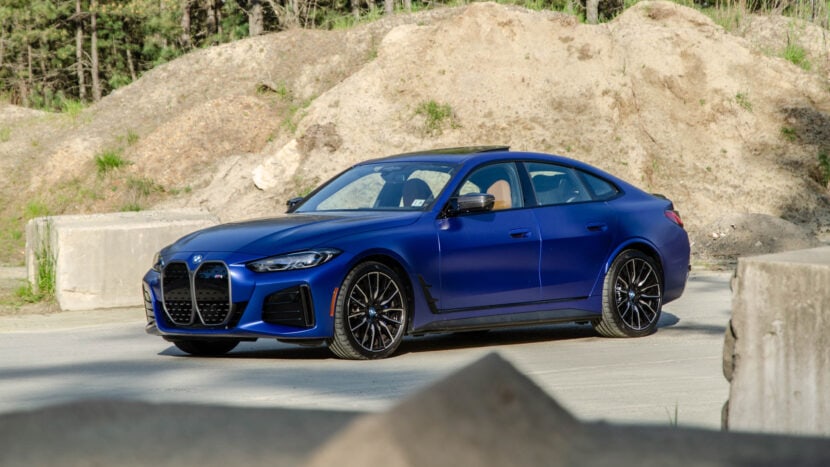
- Charging, 20%-80%: Approximately 5 hours. High: $12.11 Low: $6.29
- Charging, 0%-100%: Approximately 8.5 hours. High: $20.18 Low: $10.49
Considering the BMW i4 eDrive40 maxes out around 300 miles of range, the 20%-80% range makes up for approximately 180 miles of range. Our competing gas vehicle would use up around seven gallons of fuel to make that same trip. So, around $28.00. Its 17.5-gallon tank would need $70.00 to reach full capacity.
Charging at Home vs. Charging Away
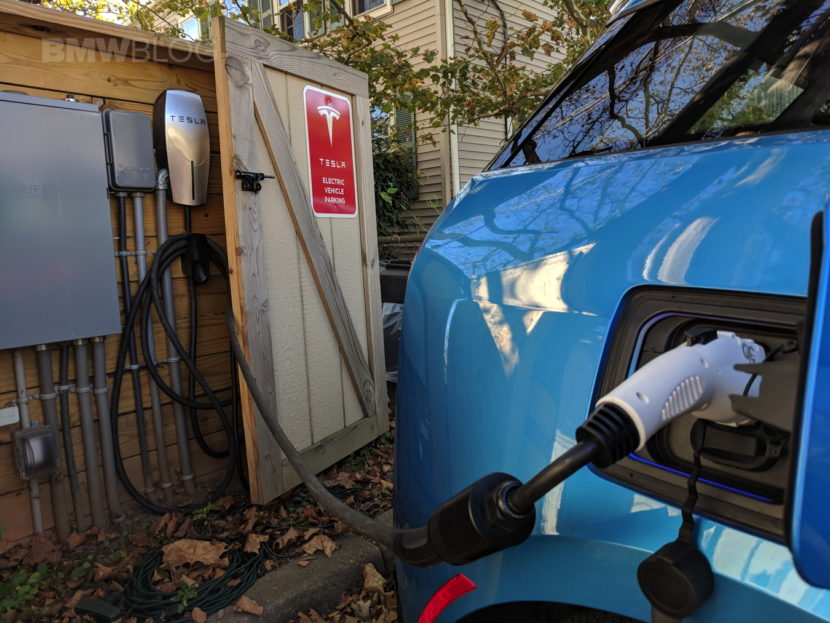
So clearly, based on the estimates above, charging at home is reasonably cost-efficient compared to gas-powered vehicles. But there’s another option: public charging. Charging away from home is typically much more expensive. The closest station to me charges around $0.50 per kWh, and that’s before any parking or additional fees. Looking at the numbers, that means that charging our BMW i4 from 20%-80% jumps to $28.00 – about double. Charging at home simply makes the best financial sense if you’re driving your vehicle regularly.
Especially when you factor in off-peak charging rates. Utility companies will often cut rates during “off-peak” hours, like nights and weekends. By doing your part to avoid overloading the grid, you’ll be rewarded with some discounted power. Choosing to charge at home on nights and weekends can greatly impact your cost-to-charge. Check with your utility provider for more information. Let’s see you try that with gas!
That’s not to say you can’t own an EV if you don’t have a home charging setup. But it makes it much more convenient and much more affordable. Even factoring in the upfront cost of installing a quality home charger – say around $1,500 – it won’t take long to make your money back.


